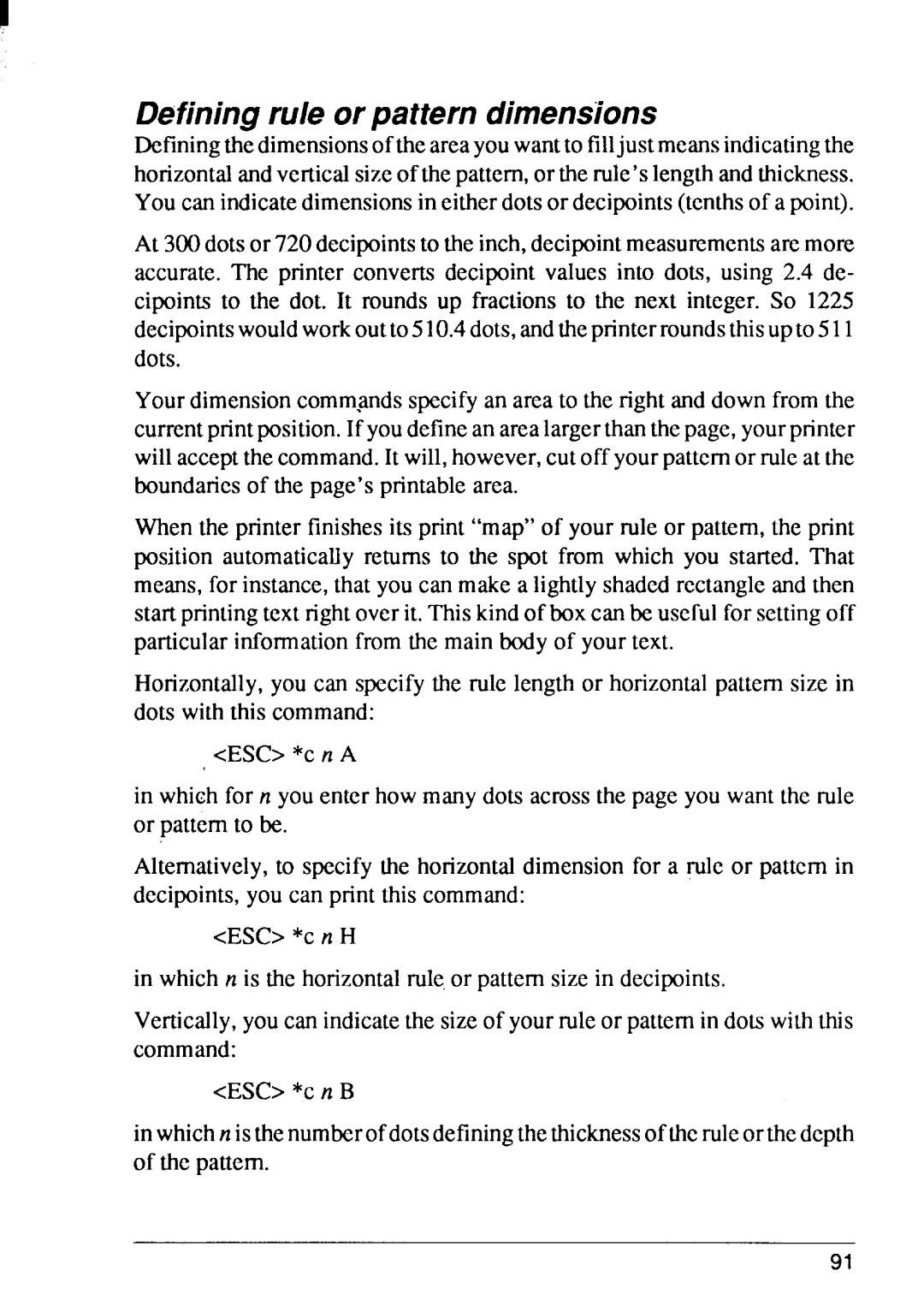
Defining rule or pattern dimensions
Definingthedimensionsoftheareayouwantto filljust meansindicatingthe horizontalandverticalsizeof thepattern,or therule’slengthandthickness. You can indicatedimensionsin eitherdotsor decipoints(tenthsof a point).
At 300dotsor720 decipointsto the inch,decipointmeasurementsarcmom accurate. The printer converts decipointvalues into dots, using 2.4 de- cipoints to the dot. It rounds up fractions to the next integer. So 1225 decipointswouldworkoutto 510.4dots,andthepnntcrroundsthisupto511 dots.
Yourdimensioncommandsspecifyan area to the rightand down from the currentprintposition.If youdefinean arealargerthanthepage,yourprinter willacceptthecommand.It will,however,cutoff yourpattcmor ruleat the boundariesof the page’sprintablearea.
Whenthe printer finishesits print “map”of your rule or pattern,the print position automaticallyreturns to the spot from which you started. That means,for instance,that you can make a lightlyshadedrcctanglcand then startprintingtext rightoverit. Thiskindof boxcan be usefulfor settingoff particularinformationfrom the main body of your text.
Horizontally,you can specifythe rule length or horizontalpattern size in dots with this command:
cESC> *c n A
in whichfor n you enter howmany dots acrossthe page you want the rule or patternto be.
Alternatively,to specify the horizontaldimensionfor a rule or pattcm in decipoints,you can print this command:
<ESC> *C n H
in which n is the horizontalrule,or patternsize in decipoints.
Vertically,youcan indicatethe sizeof yourruleor patternin dotswith this command:
<ESC> *C n B
in whichn isthenumberofdotsdefiningthethicknessof thendc orthc depth of the pattern.
91
